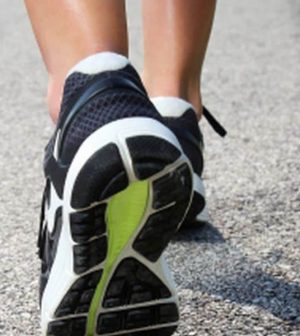- The Long-Term Effects of Daily Turmeric Supplements on Liver Health
- Could Your Grocery Store Meat Be Causing Recurring UTIs?
- Are You Making This Expensive Thermostat Error This Winter?
- Recognizing the Signs of Hypothyroidism
- 10 Strategies to Overcome Insomnia
- Could Artificial Sweeteners Be Aging the Brain Faster?
- Techniques for Soothing Your Nervous System
- Does the Water in Your House Smell Funny? Here’s Why
- Can a Daily Dose of Apple Cider Vinegar Actually Aid Weight Loss?
- 6 Health Beverages That Can Actually Spike Your Blood Sugar
Some Activity Fine for Kids Recovering From Concussions, Docs Say

Children and teens who suffer a sports-related concussion should reduce, but not eliminate, physical and mental activity in the days after their injury, an American Academy of Pediatrics report says.
“Athletes absolutely need to take an immediate break from play after a concussion, but we find that, during the recovery process, it is best to encourage a reasonable amount of activity, such as brisk walking,” report lead author Dr. Mark Halstead said in an AAP news release.
“Students shouldn’t need to take a prolonged amount of time away from school, though they should work with teachers on lessening the academic workload. These are individual decisions that families should discuss and evaluate with their child’s physician,” he said.
Halstead is an associate professor of pediatrics and orthopedics at Washington University School of Medicine in St. Louis.
There’s no research showing that the use of electronics such as computers, television, video games or texting poses a risk to children and teens after a concussion. In fact, banning kids from using electronics may lead to feelings of social isolation, anxiety or depression, according to the report.
The report, the academy’s first update on concussion protocol in eight years, said that between 1.1 million and 1.9 million children and teens are treated for recreational or sports-related concussions in the United States every year, but the actual number is likely higher.
“While more families, physicians and coaches are aware of the health risks of a blow to the head — and more concussions are being reported — we remain concerned about players who try to tough it out without seeking help,” Halstead said.
“We know from surveys that many high school athletes will continue to play after a head injury out of fear they won’t be allowed back on the field,” he explained.
Effective concussion management can shorten recovery time and reduce the risk of long-term symptoms and complications, according to the report, published online Nov. 12 in the journal Pediatrics.
Football, lacrosse, ice hockey and wrestling carry the highest concussion risks for boys. Soccer, lacrosse, field hockey and basketball pose the highest risks for girls, the report authors said.
Most children and teens recover from concussion symptoms within four weeks of their injury, according to the report.
More information
The National Safety Council has more on youth concussions.
Source: HealthDay
Copyright © 2026 HealthDay. All rights reserved.










